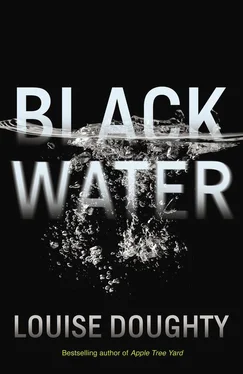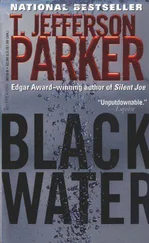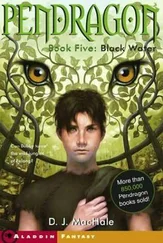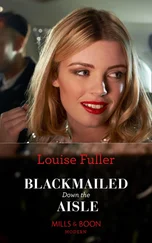Harper rose and picked up his plate and Poppa said, ‘You don’t need to clear the table today, Nicolaas, go play.’ Harper began to feel sick. Clearing the table was a rigid duty. He looked at Nina but she was still staring at Poppa, the letter in her hand.
Poppa repeated, in a light tone of voice, ‘Nicolaas. Go kick a ball around the garden.’
As Harper closed the back door behind him, slowly because he wanted to hear what would come next, Poppa said, ‘We don’t know for sure.’
He sat down. A long silence came then.
Then Nina’s voice, a strangled kind of shriek. ‘That selfish. . selfish. . trash . . that’s all she is.’
He had never heard Poppa raise his voice to Nina before now — Michael, when he was here, him occasionally, but not Nina.
‘ Never use a phrase like that of our boy’s mother! It isn’t right.’
‘Is it right what she’s doing? Is it? How can you defend her? Everything went wrong the minute she came along. Michael.’
‘Michael wasn’t her fault, you know that.’
‘She didn’t help.’
A concession, then. ‘No, she didn’t. But. .’ Poppa’s voice was softer now.
He had descended two of the steps before he sat down to make sure his head wasn’t visible in the glass panel in the top half of the door. All the same, all they had to do was glance out of the kitchen window to see that he hadn’t made it as far as the backyard.
Nina was crying now. ‘Haven’t we lost enough?’ she sobbed. ‘Haven’t we?’ Poppa was soothing her.
The most frightening thing was that, whatever the contents of the letter, things were bad enough for them to have forgotten him. Normally, Poppa was sharp enough to realise if he was hovering around. He sat on the step, listening to Nina’s sobs. At the end of the garden, Jimmy was snuffling in the border, the fluffy swoop of his tail a crescent-moon shape, batting to and fro.
He still expected his brother to show up at any minute — still caught himself wondering why Bud did not come jumping down the stairs, two at a time, like always, or appear running around the corner of the house just as Harper had picked up a ball or a bat, claiming it was his. In the mornings, he woke up alone in the box room and looked over at Bud’s empty bed, the quilt neat and smoothed. If he closed his eyes again immediately, he could hear Bud’s voice in his head. He still thought to himself, some mornings, When I open my eyes again, Bud will be there. If I believe in it strongly enough, then that will make it so. Arjuna the warrior could have made that happen, somehow. Reverend Wilson had organised a memorial service and the whole of the district had come — people still left pies and casseroles on the veranda with chequered cloths over them — but there had been no funeral. His body had yet to be found.
Later that day, Poppa called him into the sitting room and asked him to sit down. It reminded him of the first time he had come to the house, when Poppa had asked him into the kitchen and enquired, with a lawyer’s solemnity, whether it could really be true that he had an extra a in his name; and for the first few minutes of the conversation, even as it became clear how serious this matter was, he wondered whether Poppa was about to turn the whole thing into a joke.
‘Nicolaas, son, tell me, how much do you remember about your mother?’ Poppa continued without waiting for him to answer. ‘Do you remember how, when she left, your mother said she would either come back or send for you and Bud? Do you remember that?’
He didn’t remember the conversation quite like that, but that didn’t seem important right now. It was more than three years since his mother had left. There had been letters occasionally, a birthday card each year. There had been a Christmas present that had arrived one February, three small hardback books he couldn’t read with a note saying he mustn’t forget his Dutch.
‘Well, even though Bud is gone, has been taken away from us, that time has come,’ Poppa said.
They were going to Holland? He remembered so little about having lived there. The bread they ate was stale. They had to wear three coats inside the house because it was so cold. His mother had wailed every day that without his father’s army pension, they would starve. They were going back to mud and cold? Did you still have to wear three coats inside the house?
‘When are we going?’
Poppa paused. ‘Nina and I aren’t going, son. Our lives are here, in Los Angeles. My work is here. We would keep you here with us forever, if it was possible, I want you to know that. We think of you as ours. But your mother is your mother and she wants you back.’ It finally became clear: no Nina, no Poppa, no Jimmy either. He had lost Bud and now he was losing the rest of them.
It was very simple. ‘I’m not going.’
‘Nicolaas, your mother wrote us some time ago, after — after Bud was taken from us. We didn’t tell you because we didn’t want to worry you in case it wasn’t going to happen. We wrote back saying how we very much wanted you to stay with us but she has written us again and she is insistent and she is your mother, after all. She wants you back.’
‘I hate her.’
‘No, you don’t. Your mother loves you and that’s why she wants you back.’
‘She knows I like it here.’
‘Yes, she does but her need is greater than yours, in her head.’
‘Then she is a bad person. How can you let me go and live with a bad person?’ He suddenly felt very grown up, like a lawyer. It was simple. He just had to win the argument, then everything would be okay.
Poppa had been standing up in front of him, but now he sat down next to him, reached out and, very gently, took hold of his upper arm, as if he needed to hold on to it for support. ‘Nicolaas, I can see how it seems like the same thing to you, from your point of view I mean, but she isn’t a bad person.’
‘Then what is she?’ At that moment, the immediate calamity was less pressing in his head than his appreciation of the struggle his Poppa was undergoing, the great lawyer, so used to dealing in certainty, now facing his toughest challenge yet: the moral reasoning of a twelve-year-old boy.
Poppa pursed his lips, taking the question very seriously. ‘She is rather a person who believes that because of the bad things that have happened to her, she can never be blamed for the bad things she does herself. Nothing is ever Anika’s fault, we realised that after a while. When a person believes themselves to be unaccountable for their actions then there is nothing you can do. You can’t argue with them, you can’t reason. You might as well bang your head against the wall over there.’
‘It’s the same thing, isn’t it?’
Poppa hesitated. ‘No, I don’t believe it is the same thing. The harm and hurt from your point of view may be just as great, but being unaccountable is not the same as being bad even though the unaccountable person may do as much harm as the bad person.’
He was unconvinced. What did motivation matter if the end effect was the same? There was a long silence between them then, while he struggled with the idea that this argument was more than theoretical.
‘I’m sorry, Nicolaas, truly I am, because you’ve had so much moving around, and we had really hoped that your moving around was done, that you were here for good. Now, son, I know how you are feeling but I think we need to go and see Nina now and be brave for her because. .’ And suddenly, Poppa stopped in the middle of this speech, and took a great heaving breath, as if he had been underwater for the whole conversation, had only just surfaced and had the chance to gulp at air. ‘Because we need to try and make her feel better, okay? Can you do that? Can you, Nicolaas?’
Читать дальше












